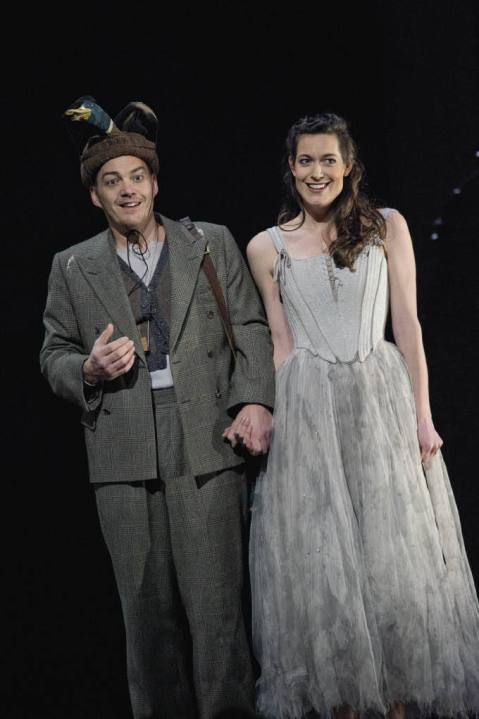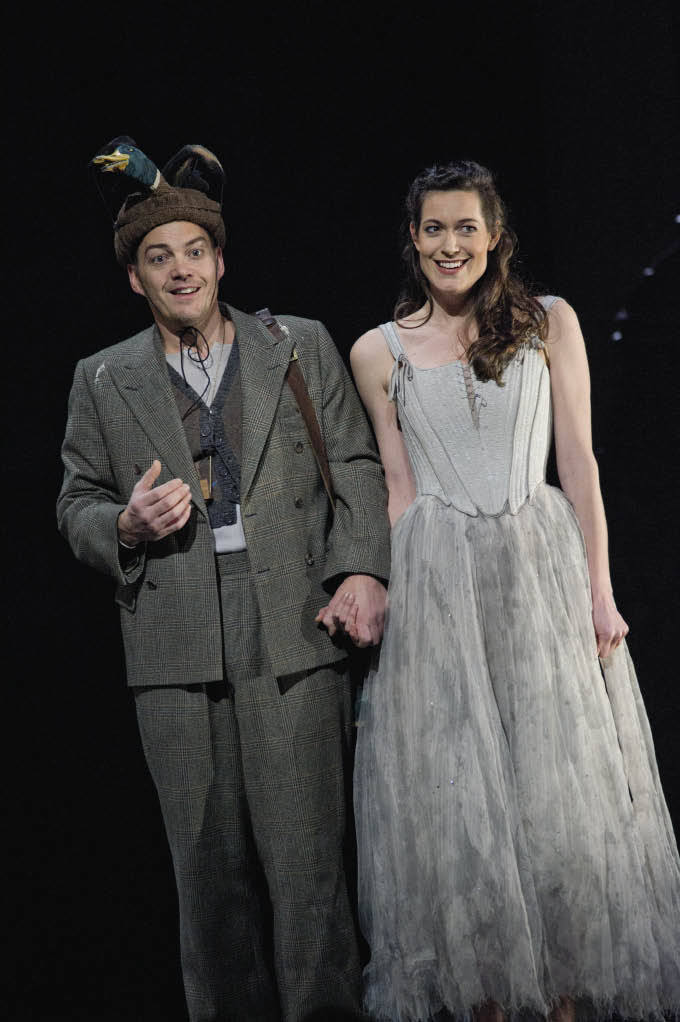Someone should write an opera about a once-great opera company, now in artistically suicidal decline. A few decades ago it had great productions and performances of the masterpieces of the repertoire, but it has been scared by successive governments warning about élitism, the need for attracting new, young, opera-hating audiences, and so on. So it has hired a succession of ‘directors’ (adopting the language of cinema), who have never seen an opera, to stage established works and mount new ones, making them look as much as possible like the eternally running musicals it eyes enviously.
It makes sure to invite for first nights a large number of media people, who are amazed at how little what they see resembles anything in the plots they read in the programme, and realise that, far from being inaccessible, opera is a multimedia affair in which you can more or less ignore the music if you want to. This so far unwritten work would not require extensive creative gifts from its composer: it would alternate scenes of audience chatter — set in the foyer of the London Coliseum — with excerpts from various well-known operas, in progressively more daring and irrelevant productions, and would end in darkness and silence onstage, while the audience brayed on unnoticing.
English National Opera’s new production of Donizetti’s Lucrezia Borgia is directed by Mike Figgis, perhaps most famous for the movie Leaving Las Vegas. In an interview in the programme he says, ‘To date, I’ve not bothered with opera because I was already engaging with the very thing opera offers’ (I wonder how he knew?). And he proves his point by telling his interviewer that he didn’t realise that the trouser role of Orsini was a trouser role, and anyway the opera has only one female character, so let’s do some gender-reassigning.
Figgis got interested in Lucrezia herself, the historical figure, and felt that Romani and Donizetti had hardly done her justice, so what more natural than to shoot four short movies and get the opera going with one of them, dispensing with the Overture, and distribute the other three through the action? Naturally, since the setting is Italy, the characters speak Italian, though in the opera they sing in English. Nor is there any resemblance between the characters in the movies and those onstage, either in appearance or in manner.
The movie characters can’t leave one another alone, either from desire or aggression, while the ones in the opera simply stand and deliver: this is of course ‘minimalism’ and is extraordinarily like the universally derided old-style operatic non-acting.
And just to widen the gap between Donizetti and Figgis still further, the English text the singers use is a new one, provided by the conductor Paul Daniel, and is in contemporary demotic — ‘What’s your problem?’, ‘She’s going nowhere’ — while they are dressed in Renaissance costumes, and the odd bit of scenery — some of it quite elaborate — suggests that period too.
Lucrezia is not one of Donizetti’s masterpieces. It has survived mainly as a vehicle for prima donnas, and thanks to the brindisi which Orsini sings in Act II. Large areas of it are rather dull accompanied recitative; only Lucrezia is awarded much succulent bel canto. Claire Rutter got the notes, but with nothing to spare; and she made very little of the role dramatically.
Her son-lover Gennaro came more vividly to life, thanks to the acting and singing of Michael Fabiano (Donizetti irritatingly neglected to include Cesare Borgia in his opera, but Figgis makes up for that in the movies). Daniel’s conducting was much preferable to his translation, but with operas of this kind a performance is either thrilling, because of the star, or tedious.
The third revival at the Royal Opera of Mozart’s last and, for me, greatest opera Die Zauberflöte in David McVicar’s production is the most rewarding operatic event for some time. The production itself, quite extensively modified by Lee Blakeley, is the best I have seen of this work: its predominant tone is dark and even grim, but plenty of space — not too much — is allowed for Papageno’s non-pilgrimage.
Christopher Maltman is enchanting in the role, even if he doesn’t explore all its pathos. The hero Tamino is a difficult part to bring fully convincingly to life, and Joseph Kaiser, though he improved in the course of the opera, needs to be less self-conscious. Kate Royal (Pamina) was happily back on form, even if her diction remains vague, and her voice a bit small for this house. But her intentions, mainly realised, are ideal. Franz-Josef Selig returns as Sarastro, and still suggests too burly a personality. The chief singing delights are the Three Ladies and the Three Boys (the latter drawn from a pool of nine, and on the first night marvellously ardent and active) and the Speaker of Matthew Best.
What makes the whole evening sublime, from the opening chord, is the grandly measured and committed conducting of Colin Davis, as comprehensively humane and generous as this incomparable masterpiece deserves.







Comments